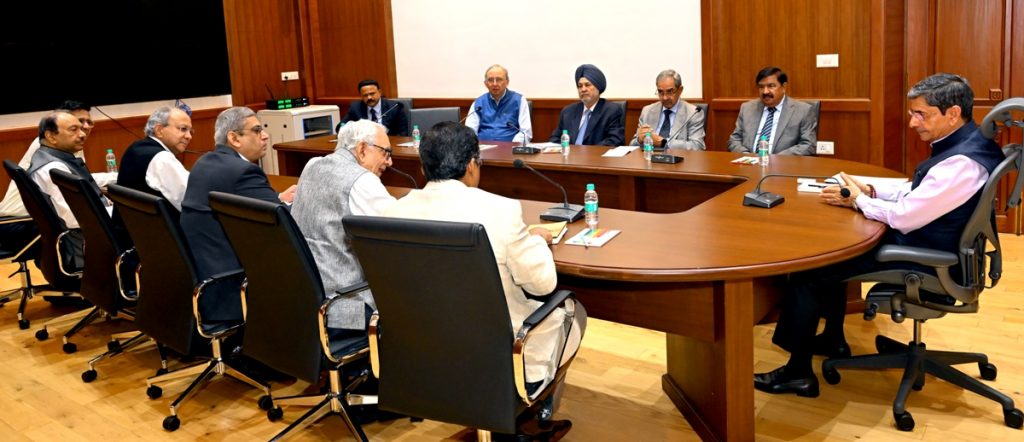Syllabus:
GS2: Statutory, Regulatory and various Quasi-judicial Bodies.
GS3: Various Security Forces and Agencies and their Mandate.
Context:
Recently, the Government has reorganised the National Security Advisory Board (NSAB) amid the ongoing tensions with Pakistan after the Pahalgam terror attack.
More on the news:
Alok Joshi, former Chief of the Research and Analysis Wing, has been appointed as a chairman.
Other new members of the board include
- Former Ambassador to Russia D. B. Venkatesh Varma
- Former Southern Army Commander Lt Gen A. K. Singh
- Former Western Air Commander Air Marshal P. M. Sinha
- Rear Admiral Monty Khanna
- Former IPS officers Rajiv Ranjan Verma
- Shri Manmohan Singh
- Shri A. B. Mathur.
National Security Advisory Board (NSAB)
- The NSAB was established in December 1998 and serves as an advisory body to provide inputs on national security matters referred by the National Security Council (NSC).
- The National Security Council Secretariat (NSCS) supports the functioning of the NSC, NSAB, and the Strategic Policy Group.
Legal mandate
- The NSAB holds neither statutory nor constitutional status and functions under the framework of the National Security Council Secretariat (NSCS).
- It is an advisory body whose recommendations are non-binding but carry significant influence.
Composition
- NSAB never has a fixed number of members, allowing flexibility in its composition based on evolving national security needs. The current strength is sixteen.
- The board’s members are appointed for a term of two years.
- The members of NSAB are appointed by the PMO on the advice of the NSA.
- The NSAB includes reputed individuals from outside the government, often former officials with notable experience and integrity.
- The chairperson and members are chosen from the military, academia, and civil society, with expertise in security, foreign affairs, defense, science, and economic matters.
Functions and Mandate
- To undertake long-term analysis and provide perspectives on national security issues to the National Security Council (NSC).
- To recommend measures/solutions and policy options on the issues referred to it by the National Security Council, as per a written reply given by the Government in Parliament.
- In the past, NSAB has contributed to the Nuclear Doctrine (2001) and National Security Review (2007).

